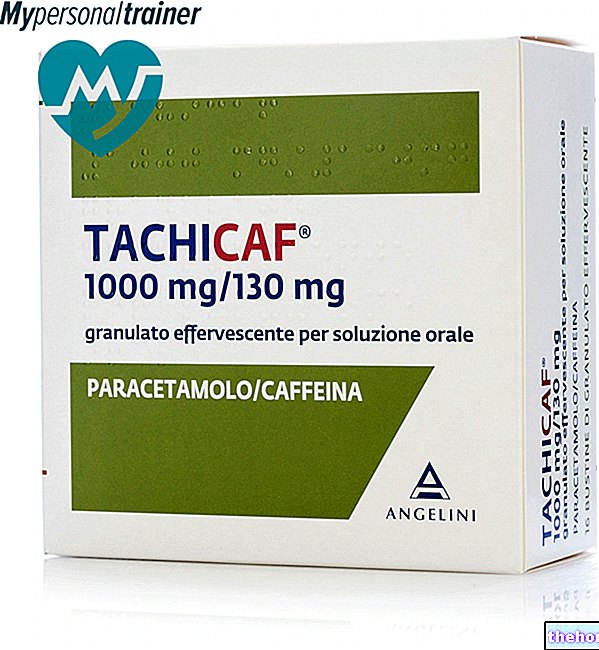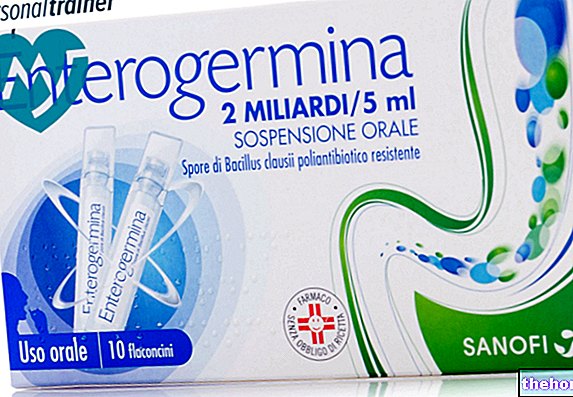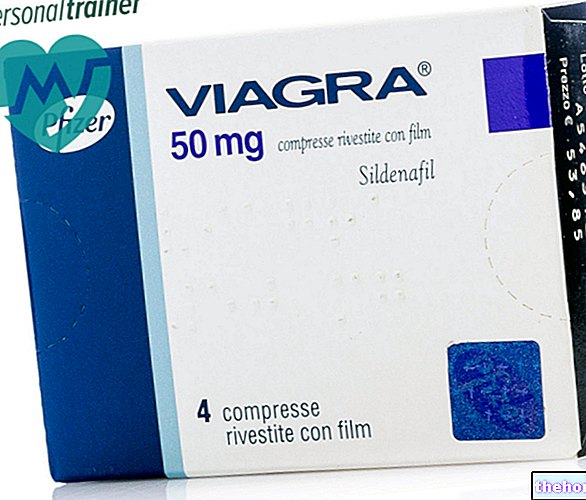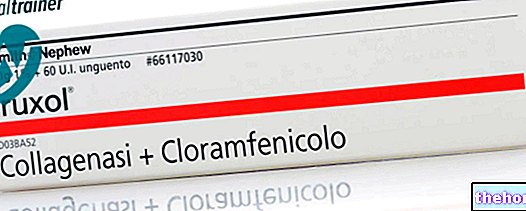Active ingredients: Bisoprolol (Bisoprolol fumarate)
CONCOR 10 mg tablets
Indications Why is Concor used? What is it for?
Pharmacotherapeutic group
Selective beta blocker
Therapeutic indications
Hypertension. Angina Pectoris
Contraindications When Concor should not be used
Bisoprolol is contraindicated in patients with:
- acute heart failure or episodes of decompensated heart failure requiring intravenous inotropic therapy;
- cardiogenic shock;
- second or third degree atrioventricular block (without pace-maker);
- sick sinus syndrome;
- sino-atrial block;
- bradycardia with less than 60 beats / min. before the start of therapy;
- hypotension (systolic pressure less than 100 mm Hg);
- severe bronchial asthma or severe obstructive and chronic lung disease;
- advanced stage of peripheral arterial occlusion and Raynaud's syndrome;
- untreated pheochromocytoma (see section "Precautions for use");
- metabolic acidosis;
- hypersensitivity to the active substance and to any of the excipients.
Generally contraindicated in pregnancy and lactation (see also section "Special warnings")
Precautions for use What you need to know before taking Concor
Bisoprolol should be used with caution in case of:
- heart failure (treatment of chronic stable heart failure with bisoprolol should be initiated with a special dose determination step);
- bronchospasm (bronchial asthma, obstructive airway diseases);
- use of inhalation anesthetics; should it be necessary to interrupt the therapy before surgery, the interruption will possibly be implemented gradually until the administration is suspended at least 48 hours before surgery;
- diabetes mellitus with unstable blood sugar; symptoms of hypoglycemia may be masked;
- strict fasting;
- ongoing desensitizing therapy;
- 1st degree atrioventricular block;
- Prinzmetal's angina;
- peripheral arterial occlusion (increased disturbances may occur especially at the start of therapy).
In bronchial asthma or other chronic obstructive pulmonary diseases, concomitant therapy with bronchodilators should be given.
In individual cases, in patients with asthma, an increase in airway resistance may occur, therefore an increase in the dose of beta 2 stimulants may be necessary.
Like other beta-blockers, bisoprolol may increase both the sensitivity to allergens and the severity of anaphylactic reactions. Treatment with adrenaline does not always show the expected therapeutic effect.
In patients with psoriasis or a family history of psoriasis, the risk-benefit ratio should be carefully evaluated before administration of beta-blockers (bisoprolol).
In patients with pheochromocytoma bisoprolol should not be administered separately from an alpha blocker.
Symptoms of thyrotoxicosis may be masked during bisoprolol therapy.
Discontinuation of bisoprolol therapy should not be done abruptly unless necessary. For more information see section "Dose, method and time of administration".
Interactions Which drugs or foods can modify the effect of Concor
Combinations not recommended:
Calcium antagonists such as verapamil and to a lesser extent diltiazem: negative effect on contractility and atrio-ventricular conduction. Intravenous administration of verapamil in patients on beta-blocker treatment may lead to profound hypotension and atrioventricular block.
Clonidine: increases the risk of "secondary hypertension" as well as an excessive reduction in heart rate and cardiac conduction. Monoamine oxidase inhibitors (except MAO-B inhibitors): strong hypotensive effect of beta-blockers, but there is also a risk of a hypertensive crisis.
Combinations to be used with caution:
Calcium channel blockers such as dihydropyridine derivatives (eg nifedipine): increase the risk of hypotension, especially at the start of treatment. In patients with latent heart failure, concomitant treatment with beta-blocking agents can lead to heart failure.
ACE inhibitors (eg captopril, enalapril): risk of an "excessive decrease in blood pressure at the start of therapy".
Class I antiarrhythmic drugs (eg disopyramide, quinidine): the effect on atrial conduction time may be enhanced and the negative inotropic effect increased.
Class III antiarrhythmic drugs (eg amiodarone): the effect on atrial conduction time may be enhanced.
Parasympathomimetic drugs (including tacrine): atrioventricular conduction time may be increased.
Other beta-blockers, including eye drops, have an additive effect.
Insulin and oral hypoglycemic agents: intensification of the hypoglycemic effect. The blockade of beta-adrenoceptors can also mask the symptoms of hypoglycemia.
Anesthetics: attenuation of the tachycardiac reflex and increased risk of hypotension. Continuation of beta blockade reduces the risk of arrhythmia during induction and intubation.The anesthetist should be informed when the patient is on beta-blocker therapy (eg bisoprolol).
Digitalis glycosides: reduced heart rate, increased atrioventricular conduction time
Prostaglandin-synthase inhibitor drugs: decreased hypotensive effects.
Ergotamine derivatives: aggravation of peripheral circulation disorders.
Sympathomimetic agents: Combination with bisoprolol may reduce the effect of both drugs. It may be necessary to increase the dose of adrenaline to counteract allergic reactions.
Tricyclic antidepressants, barbiturates, phenothiazines, as with other antihypertensives: increased blood pressure lowering effect.
Rifampicin: Possible slight reduction in the half-life of bisoprolol, due to the induction of hepatic enzymes that metabolise the drug. A change in dosage is not normally necessary.
To keep in mind:
Mefloquine: increased risk of bradycardia
Concor enhances the central depressive action of alcohol, analgesics and antihistamines.
Warnings It is important to know that:
Effects on ability to drive and use machines
In a clinical study, in patients with coronary artery disease, bisoprolol was found not to adversely affect the ability to drive. However, due to individual changes in drug reactions, the ability to drive and use machines may be affected. This must be considered in particular at the start of therapy, in the event of a change in therapy and in the case of simultaneous alcohol intake.
Pregnancy and breastfeeding
Bisoprolol has pharmacological effects which may lead to harmful effects during pregnancy and / or in the fetus / newborn. In general, beta-blockers reduce placental perfusion, which is associated with fetal growth retardation, intrauterine death, abortion or premature birth. Undesirable effects (e.g. hypoglycaemia and bradycardia) may occur in the fetus and neonate. If beta-blocker therapy is required, selective beta-1 blockers are preferable.
Bisoprolol should not be used during pregnancy unless clearly necessary. In this case, monitor the utero-placental blood flow and fetal growth. Consider alternative therapies in case of harmful effects on pregnancy and the fetus. Monitor the neonate closely as symptoms of hypoglycemia and bradycardia usually occur within the first three days.
It is not known whether the drug is excreted in human milk. Therefore it is not recommended to take bisoprolol while breastfeeding.
For those who carry out sporting activities: the use of the drug without therapeutic necessity constitutes doping and can in any case determine positive anti-doping tests.
The medicine is not contraindicated in people with celiac disease.
Dosage and method of use How to use Concor: Dosage
1 tablet per day, unless otherwise prescribed by the doctor. The starting dose can be half a 10 mg tablet per day. If necessary, the daily dosage can be increased to one tablet per day. Only in isolated cases may it be necessary to increase the dose to two tablets (in a single administration) per day.
Due to the balanced excretion modalities, no special dosage adjustments are necessary in patients with mild renal or hepatic insufficiency or in concomitant therapy with drugs inducing hepatic metabolism (eg rifampicin); only in severe cases it is advisable not to exceed a daily dose of 10 mg. Concor therapy should not be stopped abruptly; this is particularly true in patients suffering from angina pectoris.
The tablets should be swallowed with a little liquid, if possible in the morning, on a full stomach.
Overdose What to do if you have taken too much Concor
The most common symptoms expected in case of overdose are: bradycardia, hypotension, bronchospasm, acute heart failure and hypoglycemia. Few cases of overdose with bisoprolol have been reported to date (maximum dose: 2000 mg). Bradycardia and / or hypotension have been noted. All the patients recovered. There is "a" large individual variability in sensitivity to a single high dose of bisoprolol. It is therefore mandatory to start the therapy of these patients with a gradual titration according to the scheme reported in section 4.2.
In general, in the event of an overdose, bisoprolol treatment should be discontinued and supportive and symptomatic therapy instituted. Limited data suggest that bisoprolol is difficult to dialyzable. Based on the expected pharmacological actions and recommendations of other beta-blockers, the following general measures should be considered when clinically justified:
- Bradycardia: administer intravenous atropine. If the response is inadequate, isoprenaline or another drug with positive chronotropic properties may be administered with caution. In some circumstances it may be necessary to insert a transvenous pacemaker.
- Hypotension: Intravenous fluids and vasopressors should be administered. Intravenous administration of glucagon may be helpful.
- Atrioventricular block (degree II or III): Patients should be monitored closely and treated with isoprenaline infusion or a transvenous pacemaker may need to be introduced.
- Acute worsening of heart failure: administer intravenous diuretics, inotropic drugs, vasodilators.
- Bronchospasm: Administer bronchodilators such as isoprenaline, beta 2 sympathomimetic drugs and / or aminophylline.
- Hypoglycemia: administer intravenous glucose
Side Effects What are the side effects of Concor
Side effects to the drug are listed below, in order of frequency, using the following convention:
Very common (≥ 1/10)
Common (≥1 / 100,
Uncommon (≥ 1 / 1,000 to
Rare (≥ 1 / 10,000,
Very rare (
Not known (frequency cannot be estimated from the available data)
Very common
Cardiac disorders: bradycardia
common
Cardiac disorders: worsening of heart failure
Vascular disorders: sensation of cold or tingling in the extremities, hypotension
Nervous system disorders: dizziness *, headache *
General disorders and administration site conditions: tiredness *, exhaustion *
Gastrointestinal disorders: nausea, vomiting, diarrhea, constipation (*) These symptoms occur mainly at the beginning of therapy, are generally mild and usually disappear within 1-2 weeks
Uncommon
Musculoskeletal and connective tissue disorders: muscle weakness, cramps
Cardiac disorders: atrioventricular conduction disturbances. Vascular disorders: orthostatic hypotension
Psychiatric disorders: sleep disturbances, depression
Respiratory, thoracic and mediastinal disorders: Bronchospasm in patients with bronchial asthma or a history of obstructive disease
Rare
Nervous system disorders: syncope
Psychiatric disorders: nightmares, hallucinations
Skin and subcutaneous tissue disorders: hypersensitivity reactions (itching, redness, rash)
Hepatobiliary disorders: increased liver enzymes (ALAT, ASAT), hepatitis
Metabolism and nutrition disorders: increased triglycerides
Reproductive system and breast disorders: disorders of male sexual function
Ear and labyrinth disorders: hearing disorders
Eye disorders: reduced lacrimation (to be taken into account in the case of use of contact lenses)
Respiratory, thoracic and mediastinal disorders: allergic rhinitis
Very rare
Eye disorders: conjunctivitis
Skin and subcutaneous tissue disorders: alopecia. Beta blockers could cause or worsen psoriasis or induce pseudo-psoriatic rashes.
Although there are no reports in this regard with the use of Concor, it should be noted that isolated cases of thrombocytopenic purpura and granulocytopenia have been reported following the use of beta-blockers.
Reporting of side effects
If you get any side effects, including any possible side effects not listed in this leaflet, contact your doctor or pharmacist. Undesirable effects can also be reported directly via the national reporting system at https://www.aifa.gov.it/content/segnalazioni-reazioni-avverse. By reporting side effects you can help provide more information on the safety of this medicine.
Expiry and Retention
Expiry: see the expiry date printed on the package.
Warning: do not use the medicine after the expiry date indicated on the package.
The expiry date indicated refers to the product in intact packaging, correctly stored.
Composition
CONCOR 10 mg tablets
each tablet contains
Active ingredient: bisoprolol fumarate 10 mg
Excipients: corn starch, microcrystalline cellulose, povidone, hypromellose, magnesium stearate, anhydrous colloidal silica, titanium dioxide, macrogol 6000, yellow iron oxide, anhydrous dibasic calcium phosphate, red iron oxide
Pharmaceutical form
Box of 28 tablets of 10 mg
Source Package Leaflet: AIFA (Italian Medicines Agency). Content published in January 2016. The information present may not be up-to-date.
To have access to the most up-to-date version, it is advisable to access the AIFA (Italian Medicines Agency) website. Disclaimer and useful information.
01.0 NAME OF THE MEDICINAL PRODUCT
CONCOR 10 MG TABLETS
02.0 QUALITATIVE AND QUANTITATIVE COMPOSITION
1 tablet contains:
Active principle:
SMOKED BISOPROLOL 10 mg.
03.0 PHARMACEUTICAL FORM
Tablets.
04.0 CLINICAL INFORMATION
04.1 Therapeutic indications
Hypertension.
Angina Pectoris.
04.2 Posology and method of administration
1 tablet of 10 mg per day, unless otherwise prescribed.
The starting dose can be ½ a 10 mg tablet once a day. If necessary, the daily dosage can be increased to 1 tablet per day. Only in isolated cases it may be necessary to increase the dose to 2 tablets of 10 mg (single dose) per day.
Due to the balanced excretion modalities, no special dosage adjustments are necessary in patients with mild renal or hepatic insufficiency or in concomitant therapy with drugs inducing hepatic metabolism (eg rifampicin); only in severe cases it is advisable not to exceed a daily dose of 10 mg. Concor therapy should not be stopped abruptly; this is particularly true in patients suffering from angina pectoris.
The tablets should be swallowed with a little liquid, if possible in the morning, on a full stomach.
04.3 Contraindications
Bisoprolol is contraindicated in patients with:
• acute heart failure or episodes of decompensated heart failure requiring intravenous inotropic therapy;
• cardiogenic shock;
• second or third degree atrioventricular block (without pace-maker);
• sick sinus syndrome;
• sino-atrial block;
• bradycardia with less than 60 beats / min. before the start of therapy;
• hypotension (systolic blood pressure below 100 mm Hg);
• severe bronchial asthma or severe obstructive and chronic lung disease;
• advanced stage of peripheral arterial occlusion and Raynaud's syndrome;
• untreated pheochromocytoma (see section 4.4);
• metabolic acidosis;
• hypersensitivity to the active substance or to any and any of the excipients.
Generally contraindicated in pregnancy and lactation (see section 4.5).
04.4 Special warnings and appropriate precautions for use
Bisoprolol should be used with caution in case of:
• heart failure (treatment of chronic stable heart failure with bisoprolol should be initiated with a special dose determination step);
• bronchospasm (bronchial asthma, obstructive airway diseases);
• use of inhalation anesthetics; should it be necessary to interrupt the therapy before surgery, the interruption will possibly be implemented gradually until the administration is suspended at least 48 hours before surgery;
• diabetes mellitus with unstable blood sugar; symptoms of hypoglycemia may be masked;
• strict fasting;
• ongoing desensitizing therapy;
• 1st degree atrioventricular block;
• Prinzmetal's angina;
• peripheral arterial occlusion (increased disturbances may occur especially at the start of therapy).
In bronchial asthma or other chronic obstructive pulmonary diseases, concomitant therapy with bronchodilators should be given.
In individual cases, in patients with asthma, an increase in airway resistance may occur, therefore an increase in the dose of beta 2 stimulants may be necessary.
Like other beta-blockers, bisoprolol may increase both the sensitivity to allergens and the severity of anaphylactic reactions. Treatment with adrenaline does not always show the expected therapeutic effect.
In patients with psoriasis or a family history of psoriasis, the benefit-risk balance should be carefully evaluated before administration of beta-blockers (bisoprolol).
In patients with pheochromocytoma bisoprolol should not be administered separately by an alpha blocker.
Symptoms of thyrotoxicosis may be masked during bisoprolol therapy.
Discontinuation of bisoprolol therapy should not be done abruptly unless necessary. For more information see section 4.2.
04.5 Interactions with other medicinal products and other forms of interaction
Combinations not recommended:
Calcium antagonists such as verapamil and to a lesser extent diltiazem: negative effect on contractility and atrio-ventricular conduction. Intravenous administration of verapamil in patients on beta-blocker treatment may lead to profound hypotension and atrioventricular block.
Clonidine: increases the risk of "secondary hypertension" as well as an excessive reduction in heart rate and cardiac conduction.
Monoamine oxidase inhibitors (except MAO-B inhibitors): strong hypotensive effect of beta-blockers, but there is also a risk of a hypertensive crisis.
Combinations to be used with caution:
Calcium channel blockers such as dihydropyridine derivatives (eg nifedipine): increase the risk of hypotension, especially at the start of treatment. In patients with latent heart failure, concomitant treatment with beta-blocking agents can lead to heart failure.
ACE inhibitors (eg captopril, enalapril): risk of an "excessive decrease in blood pressure at the start of therapy".
Class I antiarrhythmic drugs (eg disopyramide, quinidine): the effect on atrial conduction time may be enhanced and the negative inotropic effect increased.
Class III antiarrhythmic drugs (eg amiodarone): the effect on atrial conduction time may be enhanced.
Parasympathomimetic drugs (including tacrine): atrioventricular conduction time may be increased.
Other beta-blockers, including eye drops, have an additive effect.
Insulin and oral hypoglycemic agents: intensification of the hypoglycaemic effect. Furthermore, blockade of beta-adrenoceptors can mask the symptoms of hypoglycemia.
Anesthetics: attenuation of the tachycardiac reflex and increased risk of hypotension. Continuation of beta blockade reduces the risk of arrhythmia during induction and intubation. The anesthetist should be informed when the patient is on beta-blocker therapy (eg bisoprolol).
Digitalis glycosides: reduced heart rate, increased atrio-ventricular conduction time.
Prostaglandin-synthase inhibitor drugs: decreased hypotensive effects.
Ergotamine derivatives: aggravation of peripheral circulation disorders.
Sympathomimetic agents: Combination with bisoprolol may reduce the effect of both drugs. It may be necessary to increase the dose of adrenaline to counteract allergic reactions.
Tricyclic antidepressants, barbiturates, phenothiazines, as with other antihypertensives: increased blood pressure lowering effect.
Rifampicin: Possible slight reduction in the half-life of bisoprolol, due to the induction of hepatic enzymes that metabolise the drug. A change in dosage is not normally necessary.
To keep in mind:
Mefloquine: increased risk of bradycardia
Concor enhances the central depressive action of alcohol, analgesics and antihistamines.
04.6 Pregnancy and lactation
Pregnancy
Bisoprolol has pharmacological effects which may lead to harmful effects during pregnancy and / or in the fetus / newborn. In general, beta-blockers reduce placental perfusion, which is associated with fetal growth retardation, intrauterine death, abortion or premature birth. Undesirable effects (e.g. hypoglycaemia and bradycardia) may occur in the fetus and neonate. If beta-blocker therapy is required, selective beta-1 blockers are preferable.
Bisoprolol should not be used during pregnancy unless clearly necessary. In this case, monitor the utero-placental blood flow and fetal growth. Consider alternative therapies in case of harmful effects on pregnancy and the fetus. Monitor the neonate closely as symptoms of hypoglycemia and bradycardia usually occur within the first three days.
Feeding time
It is not known whether the drug is excreted in human milk. Therefore it is not recommended to take bisoprolol while breastfeeding.
04.7 Effects on ability to drive and use machines
In a clinical study, in patients with coronary artery disease, bisoprolol was found not to adversely affect the ability to drive. However, due to individual changes in drug reactions, the ability to drive and use machines may be affected. This must be considered in particular at the start of therapy, in the event of a change in therapy and in the case of simultaneous alcohol intake.
04.8 Undesirable effects
Side effects to the drug are listed below, in order of frequency, using the following convention:
Very common (≥ 1/10)
Common (≥1 / 100,
Uncommon (≥1 / 1,000,
Rare (≥1 / 10,000,
Very rare (
Not known (frequency cannot be estimated from the available data)
Very common Cardiac pathologies: bradycardia
common Cardiac pathologies: worsening of heart failure
Vascular pathologies: feeling of cold or tingling in the extremities, hypotension
Nervous system disorders: dizziness *, headache *
General disorders and administration site conditions: tiredness *, exhaustion *
Gastrointestinal disorders: nausea, vomiting, diarrhea, constipation
(*) These symptoms occur mainly at the beginning of therapy, are generally mild and usually disappear within 1-2 weeks.
Uncommon Musculoskeletal and connective tissue disorders:
muscle weakness, cramps
Cardiac pathologies: atrioventricular conduction disturbances
Vascular pathologies: orthostatic hypotension
Psychiatric disorders: sleep disturbances, depression
Respiratory, thoracic and mediastinal disorders: bronchospasm in patients with bronchial asthma or a history of obstructive disease.
Rare Nervous system disorders: syncope
Psychiatric disorders: nightmares, hallucinations
Skin and subcutaneous tissue disorders: hypersensitivity reactions (itching, redness, rash)
Hepatobiliary disorders: increased liver enzymes (ALAT, ASAT), hepatitis
Metabolism and nutrition disorders: increased triglycerides
Diseases of the reproductive system and breast: disorders of male sexual function
Ear and labyrinth disorders: hearing disorders
Eye disorders: reduction of lacrimation (to be taken into account in the case of use of contact lenses)
Respiratory, thoracic and mediastinal disorders: allergic rhinitis
Very rare Eye disorders: conjunctivitis
Skin and subcutaneous tissue disorders: alopecia. Beta blockers could cause or worsen psoriasis or induce pseudo-psoriatic rashes
Although there are no reports in this regard with the use of Concor, it should be noted that isolated cases of thrombocytopenic purpura and granulocytopenia have been reported following the use of beta-blockers.
Reporting of suspected adverse reactions
Reporting of suspected adverse reactions occurring after authorization of the medicinal product is important as it allows continuous monitoring of the benefit / risk balance of the medicinal product. Healthcare professionals are asked to report any suspected adverse reactions via the national reporting system. "Italian Medicines Agency.
Website: www.agenziafarmaco.gov.it/it/responsabili.
04.9 Overdose
The most common symptoms expected in case of overdose are: bradycardia, hypotension, bronchospasm, acute heart failure and hypoglycemia. Few cases of overdose with bisoprolol have been reported to date (maximum dose: 2000 mg). Bradycardia and / or hypotension have been noted. All the patients recovered. There is "a" large individual variability in sensitivity to a single high dose of bisoprolol. It is therefore mandatory to initiate the therapy of these patients with a gradual titration according to the scheme reported in section 4.2.
In general, in the event of an overdose, bisoprolol treatment should be discontinued and supportive and symptomatic therapy instituted. Limited data suggest that bisoprolol is difficult to dialyzable. Based on the expected pharmacological actions and recommendations of other beta-blockers, the following general measures should be considered when clinically justified:
- Bradycardia: administer intravenous atropine. If the response is inadequate, isoprenaline or another drug with positive chronotropic properties may be administered with caution. In some circumstances it may be necessary to insert a transvenous pacemaker.
- Hypotension: Intravenous fluids and vasopressors should be administered. Intravenous administration of glucagon may be helpful.
- Atrioventricular block (degree II or III): Patients should be monitored closely and treated with isoprenaline infusion or a transvenous pacemaker may need to be introduced.
- Acute worsening of heart failure: administer intravenous diuretics, inotropic drugs, vasodilators.
- Bronchospasm: Administer bronchodilators such as isoprenaline, beta 2 sympathomimetic drugs and / or aminophylline.
- Hypoglycemia: administer intravenous glucose.
05.0 PHARMACOLOGICAL PROPERTIES
05.1 Pharmacodynamic properties
Pharmacotherapeutic group: selective beta-blocker.
ATC code: C07AB07.
Bisoprolol fumarate is a beta-blocker with selectivity for beta-1 receptors, lacking intrinsic sympathomimetic activity and membrane stabilizing activity.
As with other beta-blockers, the mechanism of action in hypertension is not entirely clear; however, bisoprolol is known to reduce heart rate and plasma renin activity.
In patients with angina, blockade of cardiac beta-1 receptors causes a reduction in myocardial oxygen consumption due to less cardiac work. This makes bisoprolol effective in eliminating or reducing symptoms.
05.2 Pharmacokinetic properties
Bisoprolol has an absorption of> 90%, has a low protein binding.
In humans, 50% of the dose is metabolised, while the remaining 50% is eliminated unchanged by the kidneys.
The metabolites are not accumulated and none of them have a beta-blocking effect on humans.
Bisoprolol exhibits a "balanced elimination between liver and kidney with a half-life of 10-12 hours.
Clinical studies have shown the same efficacy in all age groups, including elderly hypertensive subjects.
05.3 Preclinical safety data
Acute toxicity :
Subacute and chronic toxicity :
No effects on organs attributable to the use of the drug were observed at doses 500 and 90 times higher, respectively, the therapeutic dose used in humans.
Fetal toxicity and fertility studies :
Bisoprolol like other beta-blocking substances exhibits embryotoxicity in rats and rabbits when administered in high doses, but is not teratogenic in these species.
There was no effect on fertility and reproductive function in rats at the doses tested.
Mutagenesis :
In studies carried out both in vitro that in vivo no mutagenic effects or genotoxic potential were found.
Carcinogenesis :
Studies in mice and rats showed that after administration of bisoprolol there was no increase in the appearance of tumors.
Bisoprolol does not affect animal mortality.
06.0 PHARMACEUTICAL INFORMATION
06.1 Excipients
Corn starch, microcrystalline cellulose, povidone, hypromellose, magnesium stearate, anhydrous colloidal silica, titanium dioxide, macrogol 6000, yellow iron oxide, anhydrous dibasic calcium phosphate, red iron oxide.
06.2 Incompatibility
None known.
06.3 Period of validity
3 years.
06.4 Special precautions for storage
None.
06.5 Nature of the immediate packaging and contents of the package
Blister of 14 tablets.
Base sheet: rigid, transparent, 0.25 mm thick PVC film with 60 g / m2 PVDC coating.
Cover sheet: aluminum foil, rigid, smooth, 0.02mm thick; colorless glossy part, coated with a protective lacquer, matt part coated with a heat sealing lacquer.
Concor 10 mg tablets Box of 28 tablets.
06.6 Instructions for use and handling
None.
07.0 MARKETING AUTHORIZATION HOLDER
BRACCO S.p.A.
Via E. Folli, 50 - Milan
08.0 MARKETING AUTHORIZATION NUMBER
Concor 10 mg tablets A.I.C. 026573016
09.0 DATE OF FIRST AUTHORIZATION OR RENEWAL OF THE AUTHORIZATION
First authorization: March 1989
Renewal: May 2008
10.0 DATE OF REVISION OF THE TEXT
June 2015























-nelle-carni-di-maiale.jpg)




